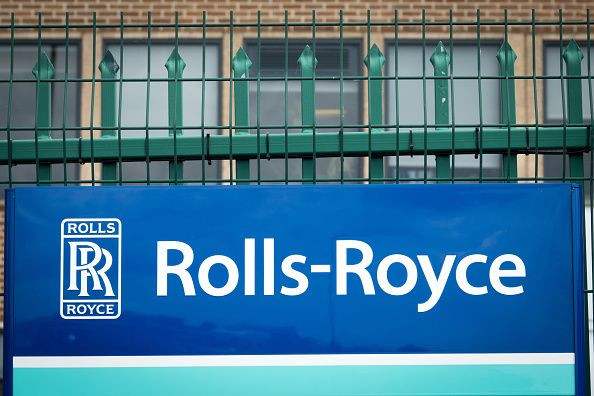Aircraft Engine Maker Rolls-Royce May Cut Up To 8,000 Jobs

KEY POINTS
- Rolls-Royce has 52,000 employees around the globe, including 23,000 in the U.K.
- The last time Rolls-Royce enacted large job cuts was in 2018 when 4,600 jobs were eliminated
- About 15,000 work for the company in Derby, U.K.
Workers at Rolls-Royce Holdings are bracing for layoffs that could see up to 8,000 jobs eliminated at the aircraft engine maker.
These job cuts would amount to 15% of Rolls-Royce’s current global workforce as the aviation industry continues to deal with the ravages of the coronavirus pandemic. Rolls-Royce has 52,000 employees around the globe, including 23,000 in the U.K. Rolls-Royce also has a strong presence in the U.S., Germany, India, Singapore, and Japan.
“We have promised to give our people further details of the impact of the current situation on the size of our workforce before the end of this month,” the company said Friday. “We have taken swift action to increase our liquidity, dramatically reduce our spending in 2020, and strengthen our resilience in these exceptionally challenging times. But we will need to take further action.”
Rolls-Royce is particularly vulnerable to the downturn in air transport demand as the widebody engines it makes are used by airplanes making long-haul flights – the kind of air travel that will be the last to recover from the crisis. Aircraft manufacturers Airbus and Boeing (BA) have both predicted that a recovery will be led by demand for narrow-body aircraft.
“[Job cuts] at some point appeared inevitable,” said Sandy Morris, an analyst at Jefferies. “We forecast full year [Rolls-Royce] group sales down 12%, but civil aerospace revenue down 18% mainly due to lower engine deliveries. The bad news really all happens in 2020.”
Morris added: “I would say that 8,000 job losses look like the potential toll from Covid-19, although I would hope that is the worst case.”
Last month, Rolls-Royce unveiled plans to save £750 million ($933 million) in costs.
At that time the company’s Chief Executive Officer Warren East warned Rolls-Royce would reduce cash expenditures, including salary costs by at least 10% this year.
The last time Rolls-Royce enacted large job cuts was in 2018 when 4,600 jobs were eliminated, mostly in the U.K. The company has already been dealing with the fallout over problems with its Trent 1000 engines. The company is projected to lose about $4 billion due to the unreliability of this engine model – losses that exceeds savings from job cuts.
Warren Buffet, whose company Berkshire-Hathaway (BRK-B) sold off its entire stake in four U.S. airlines, warned that firms involved in the aviation industry supply chain will also suffer the consequences of vanishing demand.
“We’re going to have aircraft in this country, we’re going to be flying. But the real question is whether you need a lot of new planes or not and when you’re likely to need them and it affects a lot of people,” Buffett said.
Meanwhile, U.K. trade unions have urged Rolls-Royce to refrain from cutting jobs.
Steve Turner, assistant general secretary for manufacturing at the Unite union, asked Rolls-Royce to “step back from drastic, short-term responses.”
“These are unprecedented times. We understand the challenges to our industries from COVID-19 and the impact of government measures to protect public health on both the immediate and longer-term outlook for manufacturing as well as the wider economy,” Turner said. "However, at a time when we are working hard to protect jobs and businesses through this pandemic with pay protection, government loans and other industry- specific packages backed by the Bank of England, right now we are asking Rolls-Royce, along with others across manufacturing, to hold firm and defer from short-term reactions that will both damage the economy and undermine our ability to emerge from this with job security and consumer confidence intact.”
Chris Poulter, the leader of the city council of Derby, England, is particularly concerned since about 15,000 people in his city work for Rolls-Royce.
"The coronavirus pandemic and the resulting lockdowns to safeguard public health – necessary as they have been – have had a huge effect on many sectors, but we know aerospace has been amongst those worst hit,” Poulter said. "A large part of Rolls-Royce's revenue depends upon the maintenance of aircraft engines, but with the number of flights being so low internationally, the work simply isn’t there. It is vital that Derby -- and the U.K. as a whole -- stands with Rolls-Royce, its workers and others in the sector at this challenging time."
© Copyright IBTimes 2025. All rights reserved.





















